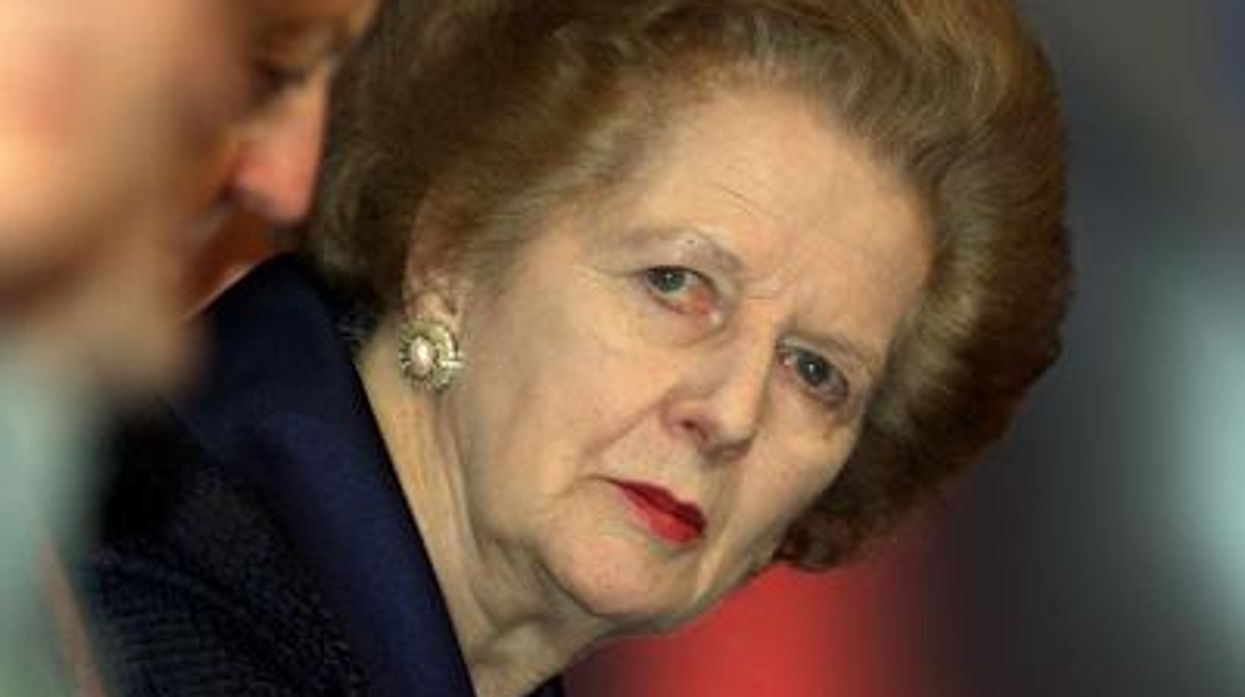
As the U.K.'s first female prime minister, Margaret Thatcher, is laid to rest Wednesday, one man reflects on life during his adolescence under the Iron Lady.
April 17 2013 4:17 AM EST
By continuing to use our site, you agree to our Privacy Policy and Terms of Use.

Margaret Thatcher, the Iron Lady, is my other mother: fairy godmother and wicked stepmother all in one. And now she's gone. In my memoir Maggie & Me, I explore how she ruined my life while at the same time saving it. How she made it possible -- but not probable -- for me to be the man I am today.
I love her and I hate her.
From growing up in the 1980s, I remember George Michael when he was just the hot half of Wham!, the first episode of EastEnders, and swooning over Diana's wedding dress. I heard the economic Big Bang but was too far from London to feel it.
There were more unicorns than yuppies where I grew up. This tiny village less than 20 miles from Glasgow always has had, and always will have, the highest Labour majority in Britain. James Keir Hardie, cofounder of the Labour Party, was born there, and my primary school was named after him. You were either an ex-miner or a soon-to-be ex-steelworker. It was, quite literally, the pits. This was my future and would have been my fate had Maggie not violently shifted our economy from industry to "services."
This blond bogeywoman was in every paper and on all four telly channels, and she hated Scotland, hated the steelworks where my dad toiled, and hated us. So they all said. I couldn't see it. She hadn't done anything to me. Not yet.
The Brighton bomb went off the same weekend, in 1984, that my parents' marriage exploded. Planted by the IRA in the Grand Hotel in this resort community, it killed five and injured 31, but somehow Maggie, attending the Conservative Party conference there, survived. I was just 8 years old. Watching on a black-and-white portable telly in a strange new flat, I was transfixed by this glamorous woman rising from the rubble. The Grand Hotel collapsed around her, but she stayed calm. She dusted herself down to talk to the BBC with her deep man's voice.
"Life must go on as usual," she insisted, as if life would do exactly what she told it. She survived and showed me that I could too.
As the nation's fortunes rose with privatization, mine fell from stability and comfort into chaos and deprivation. Then abuse. My mum's new boyfriend was far scarier than Maggie, and he wasn't on the telly. We were living under his roof, and he hated the boy who wasn't his son.
Domestic terrorism is a fist, not a bomb. It is a man who hates a boy who is not his son for preferring books to football. It is a conspiracy of silence entered into willingly because lies are easier than the truth -- black eyes, bruises, and missing teeth can all be explained away. I was tall, so I pretended to be clumsy and everybody believed me.
Maggie stayed true blue, winning the war with Argentina and three elections on the way. I admired her strength. And I liked her style. She was different, and I was too, and not just because my parents were divorced. Thatcher was my first gay icon. She had blond ambition long before Madonna. Bitchier than Alexis, blonder than Krystle, and more powerful than Blake, Thatcher was a one-woman Dynasty. She brought shoulder pads and big hair to the masses. Perhaps she also inspired my fellow escapee Christopher Kane, who grew up round the corner from me.
Books and boys were my secret obsessions. My best friend, Mark, and I would hide from school bullies in the library and escape to Narnia together. Clause 28 made Maggie's disapproval clear. When I finally worked up the courage to confess to a teacher, she said she wanted to help, she really did, but cited this clause that prevented her. Long before Google, I had to hunt down broadsheets in the local library to learn about this law, all the time fearing being caught by the librarian and turned in to my parents. Clause 28 barred schools from "promoting homosexuality." Having admitted to an official that I was gay, I feared I would be sent to jail -- the age of consent was 21. I considered killing myself. Mark did too.
Yet Thatcher had voted for the Wolfenden reforms of 1967, which decriminalized homosexuality for the first time. Her greatest achievement, and biggest crime, was to put the individual first.
I was 14 years old the day Maggie was forced out of Downing Street in tears. I cried for her then, even though she'd never cry for me. I cried for her again when I heard she died. Perhaps that was her greatest achievement. Mummy dearest.
DAMIAN BARR, @damian_barr, runs London's most talked-about literary salon and ReadingWeekend.co.uk. Maggie & Me will be published exclusively as an e-book in the United States by Bloomsbury April 25.
Charlie Kirk DID say stoning gay people was the 'perfect law' — and these other heinous quotes